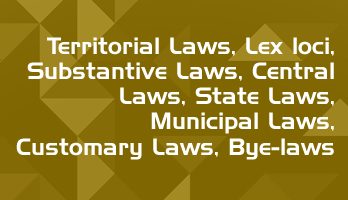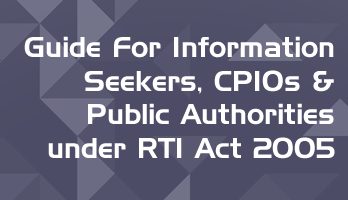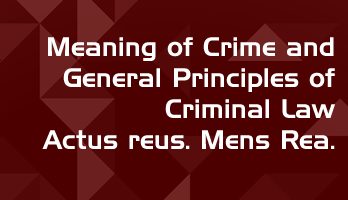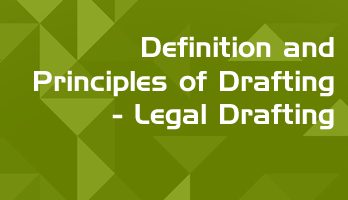Free Full Course Available on LawMint's YouTube Channel
How to Land Your Dream LLB Internship in a Top Law Firm
- Part 1 - Introduction
- Part 2 - Internship Planning
- Part 3 - Internship Research
- Part 4 - Building Your Profile
- Part 5 - The Email
- Part 6 - The Resume
- Part 7 - The Cover Letter
- Part 8 - The Interview
- Part 9 - Self Development
Practical and comprehensive course, with real examples and step-by-step analysis of the complete internship application process. Check out LawMint's YouTube channel now!
Who is a Muslim?
A Muslim is a person who practices Islam religion. As per judicial opinion, a person may be Muslim either by birth or through conversion.
- A Muslim is Muslim by birth when both the parents were Muslims at the time of his birth.
- A Muslim is Muslim by conversion when a person of different religion, on attaining the age of majority and acting with full consciousness, renounces his religion and converts into a Muslim.
Sources of Muslim Law
The following are the important sources of Muslim Law.
The Quran (The Holy Book)
Muslims consider the ‘Quran’ as the basis of their law. They believe that the ‘Quran’ is the one, that shows the truth as distinguished from falsehood, and the right from the wrong. It is the most fundamental and sacrosanct source of Muslim law. It is the Holy book for the Muslims. It contains express revelations of the Prophet (PBUH) which came to him through the angel Gabriel.
Sunna or Hadis
The Prophet (PBUH) made some implied revelations, which contained some holy and pious ideas. Such implied or internal revelations are believed to be made on the inspiration of God. These revelations formed part of the Sunna.
In other words, Sunna means traditions of the Prophet (PBUH), whatever Prophet (PBUH) said or did, are treated as his traditions. These traditions are the second source of Muslim Law.
Sunna is the precept of the Prophet (PBUH) i.e., rule of law while Hadis (Hadith) is tradition of Prophet (PBUH) i.e., sayings or occurrences.
Ijma (Consensus of Opinion)
When the ‘Quran’ and ‘Sunna’ could not supply any rule of law for a new problem then the persons having knowledge of Muslim Law used to agree unanimously and gave their common opinion over that point.
Therefore consensus of the founders of law or of the community as expressed by the most learned members are another important source of Islamic law.
Qiyas
It is collection of rules or principles deducible by the methods of analogy and interpretation from the first three sources. (The Quran, Sunna or Hadis and Ijma)
Custom
In the absence of a rule of law the text of any of the four sources mentioned above the customary practices has been regarded as law.
Custom is not an independent source of Muslim Law. However, a customary law exists in Islam either because it has got the approval of the Prophet (PBUH) or, has been incorporated in Ijma.
Legislation
Although Muslim law in India is not completely codified, some aspects of it have been regulated by the legislation like the Shariat Act, 1937 and the Dissolution of Muslim Marriage Act, 1939.
Judicial Decisions
In absence of any clear text of Muslim Law, or in case of a situation requiring alignment with the fundamental rights guaranteed in the Constitution, the court may interpret rule of law according to their own concept of justice.
Judicial decision played an important role in laying down Muslim law in accordance with the socio-economic condition of the Indian Muslims. The courts have given some important verdicts in this regard.
Justice, Equity and good conscience
Like in Hindu law, here also in the absence of any specific law or in the event of conflict, the principle of equity, justice and good conscience would be applied.
Muslim Personal Law Legislations
These laws are not applicable in Goa state, where the Goa Civil Code is applicable for all persons irrespective of religion. These laws are not applicable to Muslims who married under the Special Marriage Act, 1954.
The Muslim Personal Law (Shariat) Application Act, 1937
All the Muslims in India are governed by the Muslim Personal Law (Shariat) Application Act, 1937. This law deals with marriage, succession, inheritance and charities among Muslims.
The Dissolution of Muslim Marriages Act, 1939
The objective of the The Dissolution of Muslim Marriages Act is to consolidate and clarify the provisions of Muslim law relating to suits for dissolution of marriage by women married under Muslim law and to remove doubts as to the effect of the renunciation of Islam by a married Muslim woman on her marriage tie.
The Muslim Women (Protection of Rights on Marriage) Act, 2019
On 22 August 2017, the Supreme Court of India deemed instant triple talaq unconstitutional. The Muslim Women (Protection of Rights on Marriage) Act, 2019, which declared instant talaq illegal and void, came into effect retroactively from 19 September 2018 after being given assent by the president of India on 31 July 2019.
Questions
What do you mean by the term ‘Muslim’?
A Muslim is person whose religion is Islam. As per judicial opinion, a person may be Muslim either by birth or through conversion.
a. Muslim by birth- a person whose both the parents were Muslim at the time of his birth is regarded as Muslim by birth.
b. Muslim through conversion- any person of any religion, who is of sound mind and has attained the age of majority, can become follower of Islam after renouncing his original religion.
Write down the names of sources of Muslim law.
Following are the sources of Muslim law :
- The Quran,
- Sunna,
- Ijma,
- Qiyas,
- Custom,
- Legislation,
- Judicial decision,
- Principles of Justice, Equity and good conscience.
Free Full Course Available on LawMint's YouTube Channel
How to Land Your Dream LLB Internship in a Top Law Firm
- Part 1 - Introduction
- Part 2 - Internship Planning
- Part 3 - Internship Research
- Part 4 - Building Your Profile
- Part 5 - The Email
- Part 6 - The Resume
- Part 7 - The Cover Letter
- Part 8 - The Interview
- Part 9 - Self Development
Practical and comprehensive course, with real examples and step-by-step analysis of the complete internship application process. Check out LawMint's YouTube channel now!
Acknowledgement : This article is adapted from Swayam – NIOS course material












